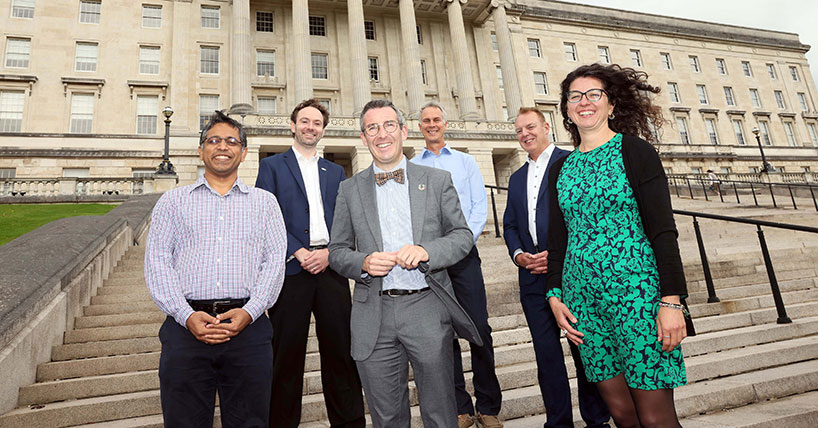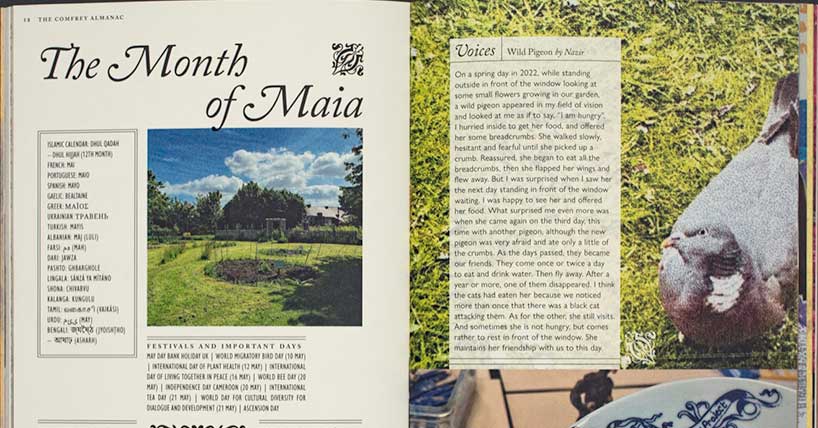algae watch
Harnessing space to fight toxic algae blooms
Published on: 18 September 2025
Newcastle University scientists are at the forefront of a UK-wide effort to use space technology to predict and monitor harmful blue-green algae blooms in Lough Neagh.
Their ALGAE-Watch project is one of only two selected for Phase 2 of the UK Space Agency’s Small Business Research Initiative (SBRI), announced today by Northern Ireland Agriculture, Environment and Rural Affairs Minister, Andrew Muir.
The Phase 2 programme has been awarded £800,000 in funding by the UK Space Agency’s Unlocking Space for Government programme and will run to April 2026. The programme will develop an operational remote‑sensing solution that predicts, detects and monitors blue‑green algae (cyanobacteria) in the lough.
Phase 1 was launched in December 2024 and it completed in April this year. Two suppliers have now been selected to progress to Phase 2. They are:
Newcastle University (ALGAE‑Watch): Advancing a low‑cost cyanobacterial sensor and multi‑modal Earth observation analytics to improve early detection and warning capability.
Plastic‑i (Bloomcast NI): Developing a forecasting and decision‑support platform that combines satellite imagery including SAR (surface aperture radar), catchment information, drone data and environmental drivers to deliver bloom risk maps and forecasts.

ALGAE‑Watch
Dr Maria-Valasia Peppa, Lecturer in Geospatial Engineering, Newcastle University said: “Leveraging interdisciplinary research excellence in the Schools of Engineering, Natural Environmental Sciences, and Computing, Newcastle University will develop a satellite, drone and in situ-sensor based algae monitoring system in Lough Neagh. With the recent growing concern around environmental impact, this investment from the UK Space Agency, DAERA and SBRI is timely to provide technological solutions to support societal and environmental resilience.”
Dr Deepayan Bhowmik, Director of Research, Newcastle University School of Computing and Senior Lecturer in Data Science, added: “I'm delighted to be part of this work that will help solving some of our imminent environmental challenges. This is another testament of Newcastle University's strength in interdisciplinary research particularly covering both emerging domains of Artificial Intelligence (AI) and Space Technology which have experienced major growth in recent years in the North-East.”
Professor Sam Wilson, Professor of Biogeochemistry, Newcastle University School of Natural and Environmental Sciences, said: “I am excited to collaborate with colleagues in the Schools of Computing and Engineering to develop the analytical and software tools that will advance the UK's ability to understand and predict harmful algal blooms".
Real‑world solutions
Announcing the launch of Phase 2 Minister Muir said: “Using space technology to forecast and monitor blue‑green algae is part of wider interventions to help improve Lough Neagh water quality. This investment moves us from research to real‑world solutions, giving our teams earlier, more accurate information and improving our monitoring capability. It shows how innovation and collaboration can deliver practical tools for environmental protection.”
Chris McQuire, Senior Lead for the UK Space Agency's Unlocking Space for Government programme, said: “Through our Unlocking Space for Government programme, we’re backing cutting-edge solutions that harness the power of satellite technology and Earth observation to protect important natural resources.
“This investment shows how space technology can deliver practical benefits for communities and the environment, whilst also strengthening the UK's position as a leader in space innovation. We're excited to see how Plastic-i and Newcastle University will advance these promising technologies from research concepts into operational tools that will make a real difference for Lough Neagh.”
Press release adapted with thanks from the Department of Agriculture, Environment and Rural Affairs. Read the original press release.



